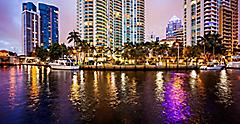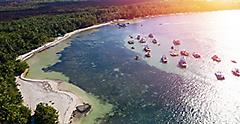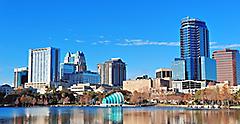How Did Bob Marley's Career Start?
Bob Marley was born in 1945 in Nine Mile, a small, rural Jamaican village. At 14 years old, he dropped out of school to learn the welding trade, and he spent his spare time playing music with friends — one of whom was soon-to-be-famous ska musician Joe Higgs. He recorded his first single as a teenager in 1962 and formed a band in 1963 called "The Teenagers," which later became the world-renowned "Wailers."
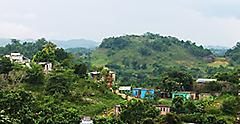
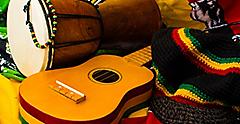
What Did Bob Marley Stand For?
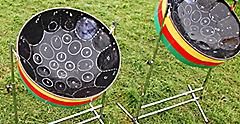
Marley's Activism And Impact On Jamaica
Bob Marley music isn't just about chill vibes and jamming out at reggae concerts, his songs are infused with messages of peace and love, inspired by his desire to be an advocate for cultural understanding and political unity. In the late 70s, he devoted much of his time to promoting peace within Jamaica and held many peace concerts with the aim of bridging the divide between Jamaica's political groups. He also served as an international cultural ambassador for Jamaica and the Rastafarian religion. He passed away from melanoma in 1981, leaving behind a legacy as a spiritual leader, musical pioneer, and ambassador for peace and unity.
As the mixed-race son of a white English plantation overseer, Marley was uniquely positioned to take a more open-minded view of the world around him. Growing up mixed-race in a majority black country struggling for independence against its British colonizers, Marley was intimately acquainted with Jamaica's racial and political struggles and tried to use music to heal the beleaguered island's wounds.
Between 1974 and 1980, gangs associated with the country's two political parties fought for supremacy, resulting in the death, injury, and displacement of thousands. His music didn't exactly soothe tensions single-handedly, but Marley's One Love Peace Concert in Kingston in 1978 was a defining moment in the conflict. The concert brought together 16 of reggae's most popular musicians for a celebration of peace. Its most iconic moment came during the performance of the song "Jammin," when Marley brought two rival political leaders on stage and raised their hands in a show of unity.
In 1980, he took his message of conciliation on the road, performing at Zimbabwe's independence ceremony and elsewhere around the world. He was the first popular musician from a developing country to hit the global stage, and his music became closely associated with the black political independence movement spreading across several African and South American countries. Apart from spreading contagious music, Marley was also spreading love and compassion for the economically disadvantaged and those suffering from racial and political violence.
Apart from his activism, Marley was also an unofficial ambassador for Jamaica. As the island's most famous and impactful export, Marley introduced to the world not only Jamaican music but also Rastafarianism, rooted in ideas of personal and spiritual freedom, peace, love, and cultural unity. Because of Marley, the spiritual underpinnings of Jamaica have made their way to the rest of the world.
Where To Learn More Bob Marley History
Nine Mile Was Where Bob Marley Was Born And Laid To Rest
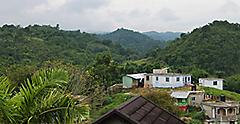
Nine Mile, the birthplace of Bob Marley, is a small village in the heart of Jamaica about two hours from both Kingston and Montego Bay. Located in the mountains of St. Ann, the village receives thousands of visitors each year looking to pay homage to the King of Reggae.
Start by taking a tour of Bob Marley's childhood home, including the rock outside the house where he used to sit for inspiration. The rock is painted with Rastafarian images, and the furnishings of the house itself are as colorful as the painted rock. You'll also find Marley's final resting place in the mausoleum, which houses two tombs — one for Marley and the other for his mother, Cedalla Booker.
Nine Mile is also conveniently located in the best travel region on the Jamaican island for seeing waterfalls. The town is just over an hour from Dunn's River Falls, Blue Hole, and Konoko Falls, which are some of the most impressive waterfalls in Jamaica.
Visit The Bob Marley Museum
If you're looking to drink in as much Bob Marley history as possible in a single location, it's tough to beat the Bob Marley Museum in Kingston. The museum is the former residence of Marley as an adult and includes the main house, exhibition hall, a theater, gift shop, and cafe. All the original rooms still appear as they did when Marley lived there, and the museum includes his personal recording studio, a collection of his gold and platinum records, his Grammy Lifetime Achievement Award, and even a 3D hologram of Marley from the One Love Peace Concert. The property has been carefully preserved as a Jamaican Heritage Site to give visitors an authentic sense of his life and legacy.
Go To Trench Town Culture Yard And Museum
In the 1940s, the Culture Yard in Kingston's Trench Town was one of the government-run tenement sites for underprivileged families, designed to accommodate impoverished Jamaicans. It now serves as a museum dedicated to Bob Marley and other reggae artists who lived there. In this small trench town enclave is where the Wailers were formed, Marley wrote his famous song "No Woman No Cry," and the breakthrough album "Catch a Fire" was recorded. For these reasons and more, the neighborhood is considered the birthplace of reggae music.
Visitors to the Culture Yard can explore six rooms of Wailers memorabilia, including the room where Marley slept with his wife, as well as several artisan shops, a picturesque courtyard, and the Casbah Cafe and Bar where you can cap off the day with a drink.
Where To Listen To Bob Marley Reggae Music In Jamaica
When the sun goes down in Jamaica, there's really only one place you want to be: a reggae bar jamming out to the music that courses through the island's veins. It will come as no surprise that there is nearly a limitless number of music venues for listening to Bob Marley when visiting Jamaica, but here are some of the best.
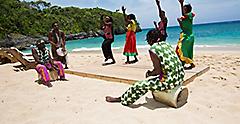
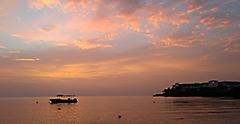
Jamnesia Surf Club, Bull Bay
With Jamnesia, you get a two-in-one special: a surf camp school and a music venue. Every other Saturday night, the school hosts jam sessions at a scenic location right by the ocean. Located on the beach just 20 minutes from Kingston, Jamnesia welcomes local up-and-coming reggae musicians to jam out in a family-friendly atmosphere. And better still — it's free to the public.
Pier 1 Restaurant, Montego Bay
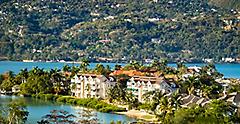
Brewery Sunset Restaurant, Montego Bay
By day, Brewery Sunset is a restaurant serving up traditional Jamaican fare. By night, it's a venue for reggae acts from all over the island. Go here Wednesday, Saturday, and Sunday nights for reggae music from local musicians, and if you dare, show up on Tuesdays and Fridays to do your best Bob Marley impersonation at reggae karaoke.
Kingston Dub Club, Kingston
For those of you who really want to lose yourself in reggae music and dance the night away, the Dub Club in Kingston is open until 2 AM every Sunday night, and features some of Kingston's best reggae and dub music (a sub-genre of electronic music inspired by reggae). Dress is casual, the dance floor is colorful, and the place has stunning views of the city from above.
Get Royal Deals, Sign Up Today

Getting There
Explore Our Most Affordable Itineraries
Learn about Bob Marley’s roots, early music, and his activism that changed this island forever on a cruise to Jamaica.



